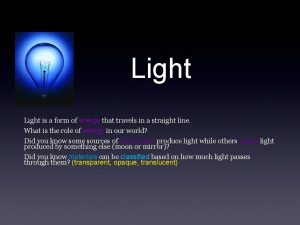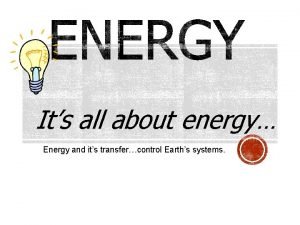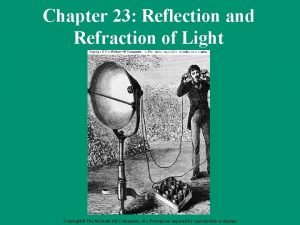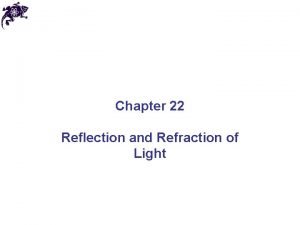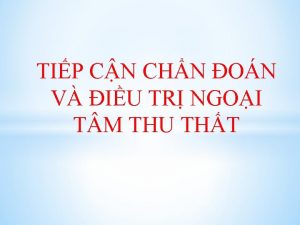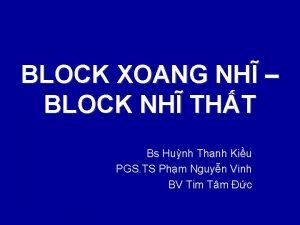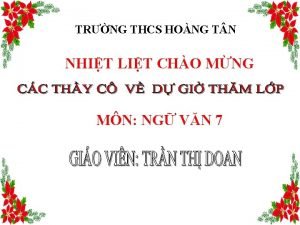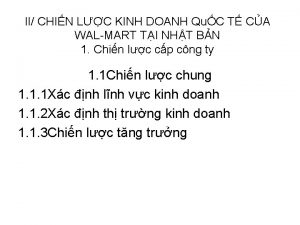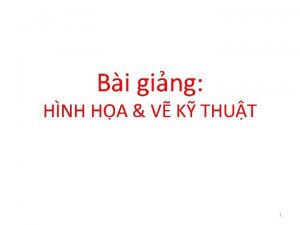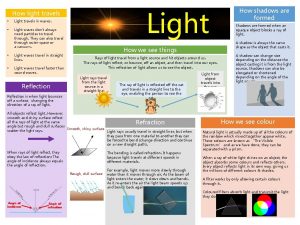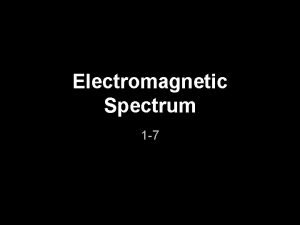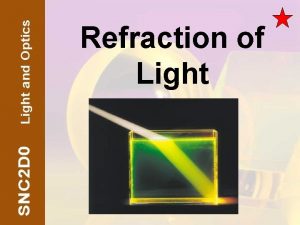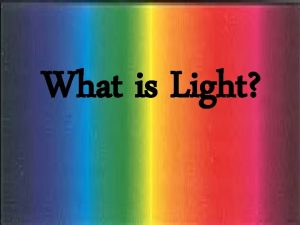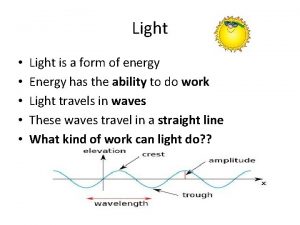Light is a form of energy that travels











- Slides: 11

Light is a form of energy that travels in a straight line. What is the role of energy in our world? Did you know some sources of illumination produce light while others reflect light produced by something else (moon or mirror)? Did you know materials can be classified based on how much light passes through them? (transparent, opaque, translucent)


Objectives At the end of the project you should be able to: • Define what light is. • Define reflect, absorb, refract, transparent, translucent, and opaque. (Use Quizlet to learn and practice the definitions) • Recognise that light is a form of energy. • Investigate the characteristics and behaviour of light. • Examine the characteristics of images in a plane mirror. • Investigate the refraction of light. • Identify ways in which lenses are used. • View the spectrum that forms when sunlight passes through a prism. • Determine what happens when two different colours of light combine.

TASK After you complete your research: Create a Keynote or Goanimate to demonstrate your understanding of these topics. • What is light? • How does light behave? • How do you see colour? • How do people communicate using light?

Step 1 - Find a partner. Search the internet. Take note of the following terms: • reflection of light • concave mirror • convex mirror • refraction of light • lens • convex lens • concave lens • absorption of light • transparent surfaces • translucent surfaces • opaque surfaces Type your words into Quizlet. You will need to be able to match these words with their definitions. • Remember to type- ‘for kids’- to get kid friendly language

Step 2: Answer the following questions using the terms from above in your answers. Click on the link below each question for more information. 1. How does light travel? http: //cse. ssl. berkeley. edu/segwayed/lessons/light/measure_behaves. html http: //science. howstuffworks. com/light. htm/printable http: //www. teachersdomain. org/resource/lsps 07. sci. phys. energy. lighttravel/

2. What happens when light strikes a surface? http: //www. colourware. co. uk/cpfaq/q 1 -2. htm http: //www. newton. dep. anl. gov/askasci/phy 00/phy 0 0232. htm http: //library. thinkquest. org/13405/optics/reflection. h tml

3. How does light affect the colors we see? http: //www. colormatters. com/vis_bk_white. html http: //www. cis. rit. edu/fairchild/Why. Is. Color/short. A s. html

4. What are the similarities/differences between a camera and the human eye? http: //www. harunyahya. com/books/science/miracle _eye/miracle_eye_02. php http: //www. rags-intinc. com/Photo. Tech. Stuff/Camera. Eye/ http: //library. thinkquest. org/28030/eyeevo. htm

Step 3 You and your partner are required to create a presentation answering the 4 questions above. Be Creative! Use multi-media. Step 4: On the last slide of the presentation answer the following question: What would happen if light was not reflected? Why?

Rubric
 Form of energy that travels in straight lines
Form of energy that travels in straight lines It is a form of energy that travels through space
It is a form of energy that travels through space Light light light chapter 23
Light light light chapter 23 Light light light chapter 22
Light light light chapter 22 Light light light chapter 22
Light light light chapter 22 Phân độ lown
Phân độ lown Block nhĩ thất độ 3
Block nhĩ thất độ 3 Thể thơ truyền thống
Thể thơ truyền thống Thơ thất ngôn tứ tuyệt đường luật
Thơ thất ngôn tứ tuyệt đường luật Chiến lược kinh doanh quốc tế của walmart
Chiến lược kinh doanh quốc tế của walmart Tìm vết của đường thẳng
Tìm vết của đường thẳng Hãy nói thật ít để làm được nhiều
Hãy nói thật ít để làm được nhiều
